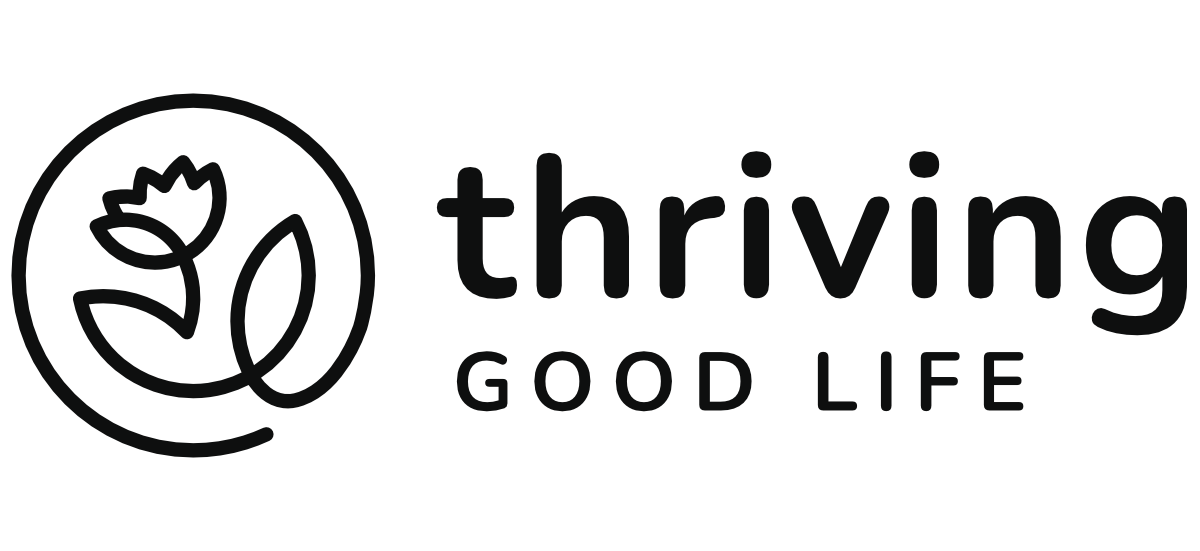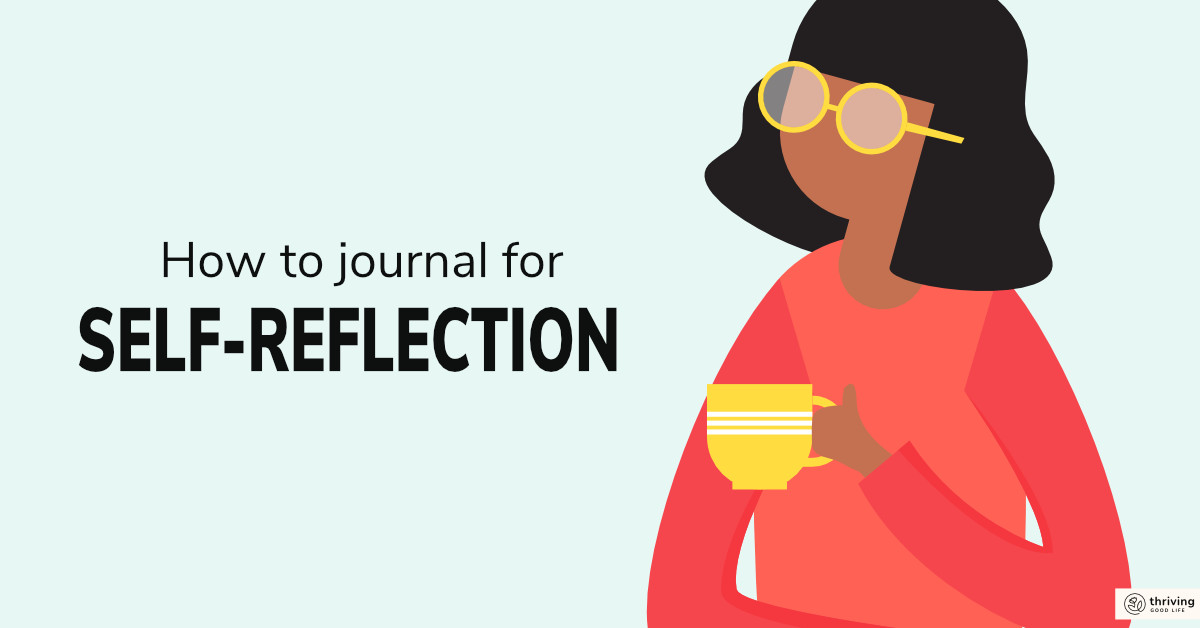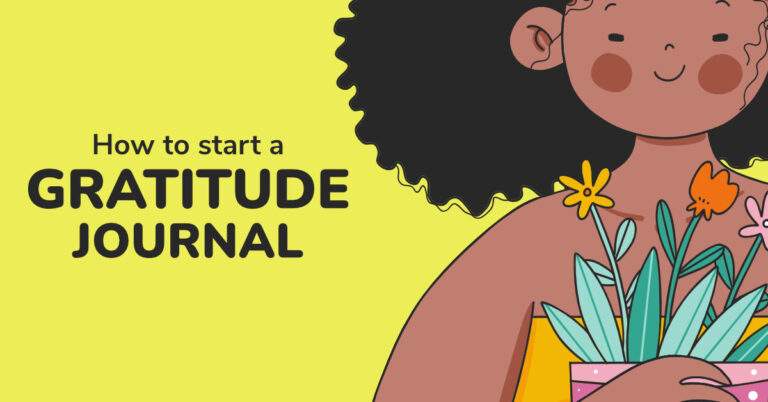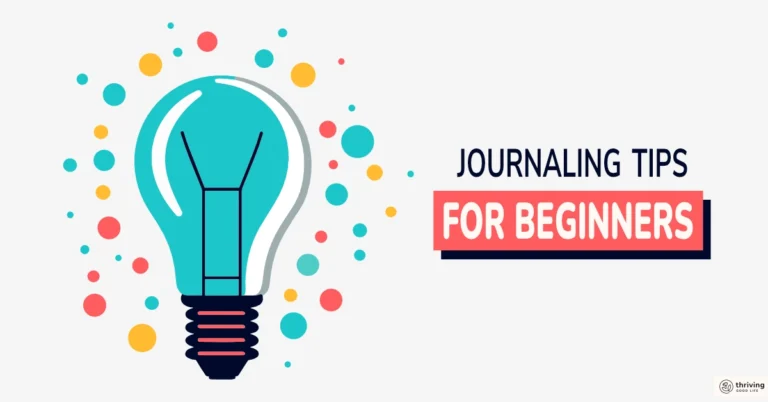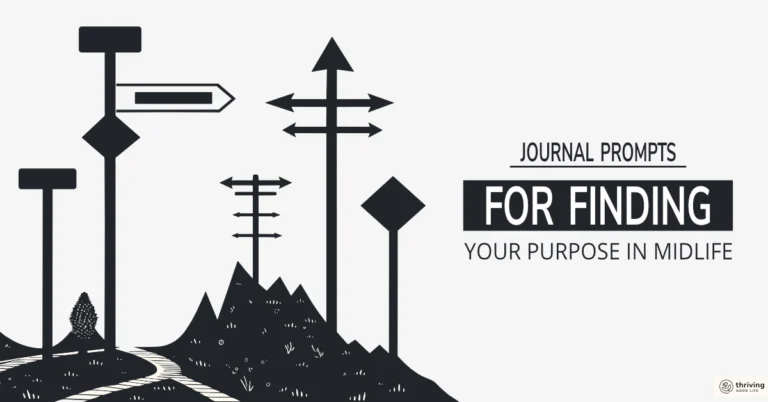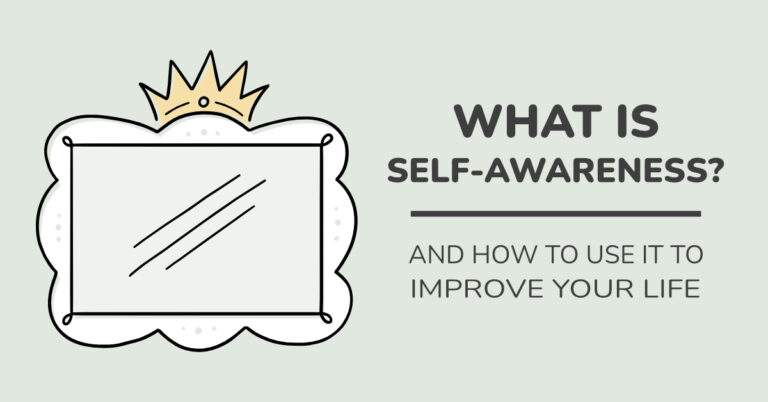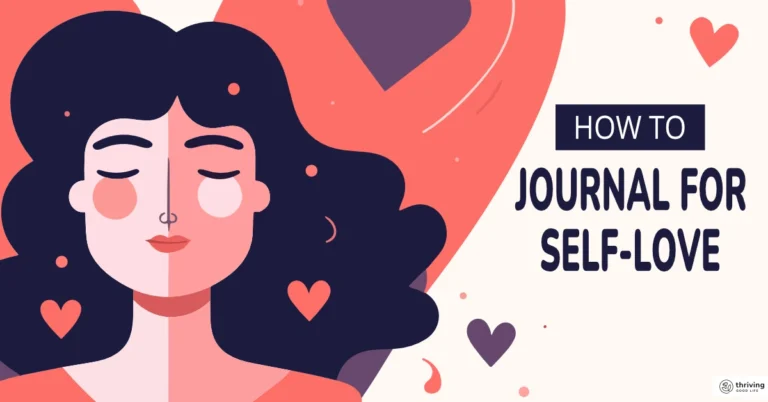Have you ever wondered why difficult situations or people make you react the way you do? And whether your reaction to whatever went down was justified?
Sometimes it’s hard to tell.
Was the other person really out of line, or did you misjudge and overreact?
It’s totally normal to mull over our reactions like this. In fact, it’s a healthy sign you’re keen on understanding yourself better.
Getting to grips with our emotions and actions isn’t a walk in the park, but it’s definitely a journey worth taking. It can smooth out our relationships and even help us go easier on ourselves.
When I catch myself overthinking a conversation or questioning a past decision, I reach for my journal. It really helps me untangle my thoughts, emotions and behavior, and sheds light on my hidden motives.
Self-reflective journaling has brought so much more depth, and peace into my life.
If you’ve ever felt misunderstood or regretted a reaction, this journaling practice technique is worth trying.
5 Reasons to Try Self-Reflective Journaling
A self-reflection journal helps you:
- Sort through your thoughts and feelings.
- Gain new insights about yourself.
- Process emotions without being overwhelmed.
- Develop a deeper understanding of your actions and motivations.
- Improve your self-image and the quality of your interactions with others.
How Do You Journal for Self-Reflection?
Self-reflective journaling is different from other types of journaling.
You’re not just recording events or situations or making lists. You’re thinking deeply about your life and writing about the experiences you’ve had in the past.
This involves asking yourself probing questions to understand what you’ve been through, how it’s affected you, and what it means for your future.
So, instead of writing “I got angry with my co-worker today,” you might ask, “What was the underlying issue that triggered my anger, and what does this reveal about myself?”
In reflective mode we’re trying to make sense of our inner world.
We quietly question our actions, and choices, growing more aware of the patterns in our lives. And it’s this self-reflection which leads to a clearer understanding of deeper emotions and motivations.
Going back to the co-worker anger episode. After you’ve had time to reflect, you might come to the conclusion that your anger wasn’t really about your co-worker. And instead, you were angry because their actions touched upon a deeper insecurity or unresolved friction within yourself.
With this new insight, you can address these underlying issues.
You might have an honest conversation with your co-worker to clear the air and prevent future misunderstandings. At the same time, you may recognize the need to work on building your self-confidence to overcome these insecurities.
We’re doing two things here: 1) repairing the relationship with someone else, and 2) repairing the relationship we have with our self, by tackling our inner struggles and taking responsibility for actions.
Owning and taking responsibility for our actions is a healthy and adult thing to do1. Even when it’s tough to admit we were the ones in the wrong.
Can You Ever Be Too Self-Reflective?
Absolutely. There’s a fine line between thoughtful introspection and rumination—dwelling on an issue or difficult situation we need to let go of. For some, thinking about their problems can make them feel worse2.
The key is distinguishing between healthy self-reflection and unproductive dwelling.
Think of self-reflection as a map you use to get to specific destination. Rumination, on the other hand, is like walking around in circles, going nowhere.
Ever had a disagreement with a friend and, instead of reflecting on what happened and moving on, you replayed the argument in my mind over and over?
Did it help? Or did it make you more upset and confused? I bet it was the latter.
💡 Tips for Avoiding Rumination
Set a Time Limit:
Give yourself a specific amount of time to reflect on an issue. For example, set a timer for 15 minutes. Once the time is up, make a conscious effort to move on to something else.
Engage in Activities:
Distract your mind with positive activities. Go for a walk, exercise, read a book, or engage in a hobby. Doing something enjoyable can help break the cycle of overthinking.
Write and Let Go:
Write down your thoughts and feelings, then close your journal. This physical act of closing the book can symbolize putting the issue to rest.
Talk to Someone:
Sometimes, sharing your thoughts with a trusted friend or therapist can give you a new perspective and help you move on.
Practice Mindfulness:
Stay present in the moment. Techniques like deep breathing or focusing on your senses can help ground you and stop your mind from wandering into overthinking.
I know because I’m a big overthinker. Or should I say, recovering overthinker?
I used to obsess over what felt like every little thing.
One of the perks of having perfectionist tendencies, I guess. I’d just sit and think myself into oblivion. It used to drive me nuts. Not to mention the amount of time and energy I’d waste over stuff I’d said or done.
I still have moments when I overthink. But, they’re few and far between.
Meditation helps focus my mind. I recognize when I’m ‘falling into the abyss’ of overthinking, and I can snap back into the present.
I’ve also gotten really good at talking myself off the ledge. I’ll say something along the lines of:
“This thought I’m having right now is unhelpful. It’s unproductive and it’s draining my energy, so I’m just not thinking about it anymore.”
And then I’ll turn my attention to something else.
It sounds hard to switch up your thought pattern like this, I know, but keep practicing.
It gets easier with time.
Areas to Focus On for Meaningful Self-Reflection
If you’re digging into your innermost thoughts and feelings, you’re bound to uncover some stuff that makes you feel sad or uncomfortable.
But you don’t have to jump straight into reflecting on painful episodes from your past. Not if you aren’t ready to do that. If needed, talk to a qualified therapist first.
If you’re ready to give this a go, ease into it gently by focusing on specific experiences or aspects of your life that feel manageable. Here are some areas to consider:
Daily and Weekly Experiences:
Reflect on what went well and what didn’t, and what you learned from these experiences.
Physical and Emotional Health:
Assess how you feel physically and emotionally, and identify areas for improvement or gratitude.
Family Life:
Explore your relationships with family members, the dynamics at play, and how they affect you.
Romantic Relationships:
Reflect on your romantic relationships, your feelings towards your partner, and areas for growth.
Social Life and Recreation:
Think about your social interactions and hobbies, and how they contribute to your overall happiness.
Work or Career:
Evaluate your satisfaction levels, achievements, and any stressors you need to address.
Financial Health:
Reflect on your financial situation, your spending habits, and your financial goals.
Personal Development:
Reflect on recent personal growth, skills you’ve developed, and areas you want to improve.
Spiritual Growth:
Explore your spiritual beliefs and practices, and how they provide comfort and guidance.
Environment:
Assess how your physical surroundings impact your mood and well-being.
How to Write a Self-Reflective Journal Entry
Writing down my reflections in a journal has helped me grow no end. Here are three simple steps to help you write your own self-reflective entries:
1) Spend Time Meditating
I mentioned meditation earlier, and how it calms my mind.
If you can, try to find time to meditate before you start journaling for self-reflection. Meditation is a great way to relax, destress and can help you get in touch with your feelings and emotions 3.
Here’s How to Start a Simple Meditation
Find a Quiet Spot:
Choose a place where you won’t be disturbed.
Set a Timer:
Start with a 5-10 minute session. Increase the time as you get more comfortable.
Focus on Your Breathing:
Close your eyes and take slow, deep breaths. Focus on how your breath feels.
Let Thoughts Come and Go:
Allow thoughts to come and go without judgment. If your mind wanders, gently bring your focus back to your breath.
And when your mind feels calm enough, you’re ready to begin journaling.
Watch the following video for a good beginner-level guided meditation:
If you struggle with meditation, try going for a walk instead.
Take your journal with you. And while you’re out, make a point of noticing everything you see; trees, fallen leaves, grass, insects, sounds and smells.
This should help get you into a relaxed state before you open your self-reflection journal.
2) Ask Yourself Good Questions
The quality of your questions determines the quality of your answers.
Good questions and journal prompts are probing. They help you delve deeper to learn more about yourself, and find solutions to problems.
Here’s How to Craft Effective Questions
Be Specific:
Instead of broad questions, narrow down to specifics. This helps you focus on particular aspects of your experience.
Probe Deeper:
Follow up your initial answers with more questions. Ask “what” and “how” to dig deeper into your thoughts and feelings. Try to avoid asking too many “why” questions, as they can keep us stuck and helpless 4.
Instead of asking, “Why am I unhappy?” try, “What specific events contributed to this feeling of unhappiness?” Follow this with, “What emotions did these events trigger? What was my response to them, and what can I do differently next time?”
Use Journal Prompts:
Start with established prompts to guide your reflection.
I’ve put a list of such prompts a few scrolls down. Be sure to check those out.
3) Answer Those Questions Honestly
Being honest when you write is a process reflective journalers have to work through if they want to reap the rewards of their reflective practice.
It’s just you and your journal. No one else needs to see what you write.
No one is going to judge you.
Here’s How to Write Honest Entries
Be Open and Vulnerable:
Write as if you’re having a candid conversation with yourself. This is your safe space to be completely honest with yourself.
Avoid Self-Censorship:
Don’t hold back or sugarcoat your feelings. Acknowledge the uncomfortable truths.
If you felt angry during the day, explore that feeling: “I felt angry when my colleague interrupted me, and I think it bothered me so much because I feel undervalued at work.”
Reflect and Revise:
After writing, read through your entry. Reflect on your thoughts and see if there’s more to uncover.
Ultimately, your level of honesty is up to you.
But self-deception can be a costly and pointless exercise.
40 Journal Prompts for Self-Reflection
Here are some prompts to help with your reflective journaling. You don’t have to answer all of them. Pick a few that feel right to you.
Daily Reflection
- Write about what went well today.
- What brought you a moment of peace today?
- What was a recent challenge, and what did you learn from it?
- How did you take care of yourself today?
- What surprised you today?
Self-Awareness
- What have you been most proud of in the past month?
- Describe the most amazing thing that’s ever happened to you and its impact.
- In what ways have you grown over the last six months?
- What are your core values, and how do they shape the choices you make?
- What does success look like to you, and how close are you to achieving it?
Emotional Health
- When have you felt your strongest and weakest?
- How well did you manage your emotions during an uncomfortable situation?
- Who or what are you tolerating that you need to distance yourself from?
- What emotions are you finding difficult right now?
- How do you manage to express your emotions in a positive way?
Boundaries & Control
- What story are you telling yourself about a recent experience?
- In what ways is this story helping or hurting you?
- What alternative story could you tell yourself?
- What made you feel in control or out of control recently?
- How do the words you say to yourself affect your mood and stress levels?
Personal Insight
- What are you feeling right now and how is it affecting you?
- Name three things you’ve accepted about your past.
- What’s been holding you back from moving forward?
- What habits or routines are serving you well, and which ones aren’t?
- How do you want to be remembered, and are you living in a way that aligns with that?
Conflict Resolution
- Reflect on a recent conflict and your role in it.
- What did you find yourself wasting time on last week?
- What do you need to do more or less of to protect your energy from negativity?
- How do you handle conflicts, and what can you improve?
- What can you learn from a recent disagreement?
Mental Well-being
- What have you found yourself judging others for? Do you recognize this behavior in yourself as well?
- What’s making you feel anxious, worried, or uneasy, and what’s at the root of this feeling?
- Who can you speak to about this?
- What activities help you feel calm, focused, and present?
- How do you demonstrate self-compassion?
Self-Honesty
- What’s the biggest lie you’re telling yourself right now?
- What do you do to stop dwelling on a problem?
- When it comes to your needs and desires, how honest are you?
- What truths have you been avoiding, and why?
- How can you be more true to yourself each day?
The ability to reflect on your life is an important skill to develop.
It’s in no way easy.
But, if you level up your journaling for self-reflection, you’ll find yourself becoming a more self-aware, emotionally balanced version of yourself.
Footnotes
- Friedman, W. J. F. (2011). Self-responsibility/self-accountability qualifies you as an adult. Mentalhelp.net
- Ayduk, Ö., & Kross, E. (2010). Analyzing negative experiences without ruminating: The role of self-distancing in enabling adaptive self-reflection. Social and Personality Psychology Compass, 4(10), 841–854.
- Shapiro, S. L., Jazaieri, H., & de Sousa, S. (2016). Meditation and positive psychology. The Oxford Handbook of Positive Psychology. In ResearchGate (3rd ed.)
- Eurich, T. (2018). Insight: the surprising truth about how others see us, how we see ourselves, and why the answers matter more than we think. Currency.
